What is a Wind Band?
Sometimes referred to as a Concert Band, Military Band, or Symphonic Band, a Wind Band is an ensemble made up of both brass and woodwind instruments. The origins of this type of ensemble can be traced back as far as the 1800’s, when this form of band was mainly seen in a military band format, used for playing marches. However, the format became more popular and as its popularity grew so did its repertoire, with many composers such as Rimsky Korsakov, Holst and Vaughn Williams ,to name a few, writing specifically for the format. Like an orchestra the mixture of instrument types gives a wind band a rich and more interesting sound to ensembles of just one instrument type, which has meant that the music played by a wind band can cross many genres, such as classical, big band, musical theatre and popular music.
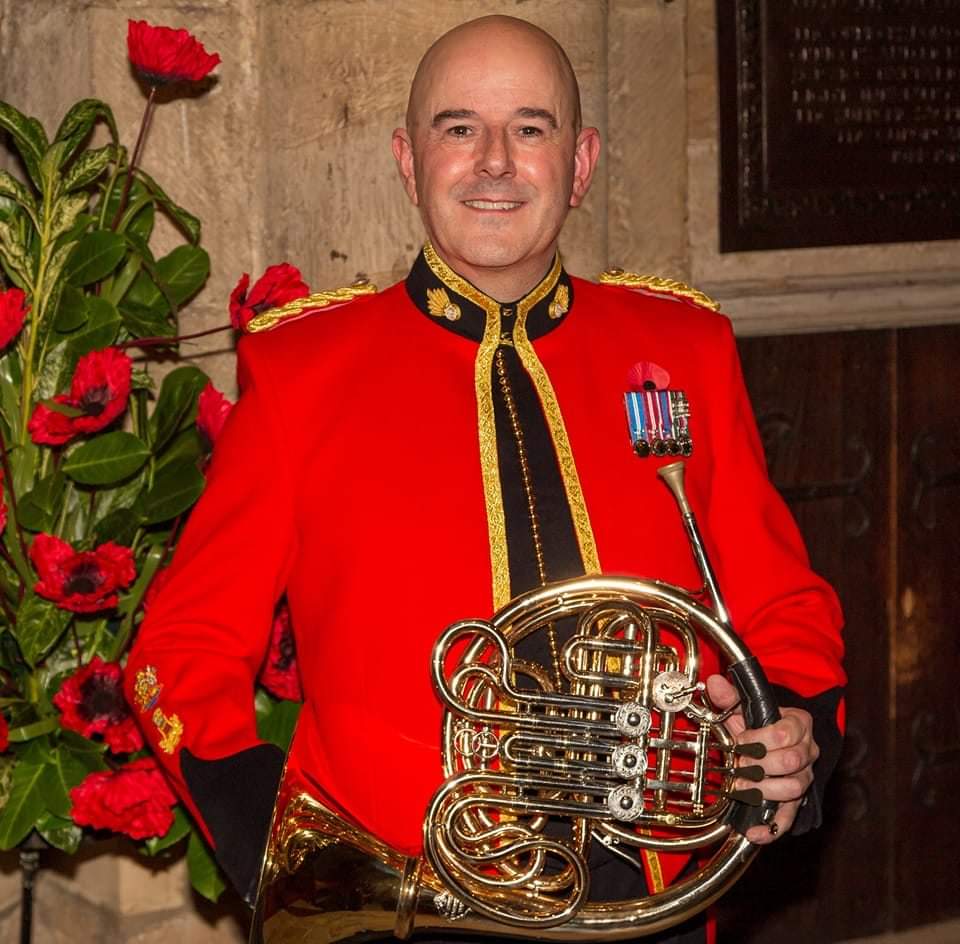
Peter Elcoat
Peter Elcoat (Dip ABRSM) Peter’s musical development began as a young child when he learned to play the trumpet. However, his musical life really took off in 1991 when he joined the Territorial Army, as a Cornet player in the Light Infantry Burma Band. In 1994, he transferred onto the French Horn due to the needs of the band. In 1999 the Burma Band was disbanded following a Strategic Defence Review, so Peter transferred into the Northumbria Band of the Tyne Tees Regiment. Shortly after transferring, he was appointed as Drum Major with responsibility for leading the band during ceremonial duties. The band subsequently changed its name to The Band of the Royal Regiment of Fusiliers. During his Army career, Peter has performed overseas on numerous occasions, including visits to Israel, Gibraltar, Germany, Romania, Cyprus, Northern Ireland and the USA. After progressing to the rank of Sergeant, Peter began to focus on developing his conducting skills, regularly deputising for the Director of Music. Peter was promoted to Warrant Officer Class 1 in December 2019 and was formerly appointed as Bandmaster of The Band of The Royal Regiment of Fusiliers. In the 2020 Peter was recognised in the Queen’s Birthday Honours, with the award of The Commander Field Army Commendation for outstanding service to the British Army. During recent years, Peter has also had successes conducting several other civilian brass bands. However, his true passion has remained with the wind band repertoire and idiom, leading Peter to be appointed as the Musical Director of The Silverwood Band. In his ‘domestic’ life, Peter is a Senior Government Manager working to safeguard some of the more vulnerable people in our society. Peter is supported in all that he does by his wonderful wife, Amanda, and their two sons, Daniel and Max.The flute is a member of the woodwind section on the band and plays on the key of C. Apart from the human voice flutes are the earliest known musical instrument. They are the only member of the woodwind family that are not played by using a reed to create the sound; instead air is blown across the embouchure hole. In a wind band you will see the flute and its smaller relative the piccolo being played. Along with other higher woodwind instruments such as clarinets and oboes the flute often plays the fast, intricate decorative melodic lines that would be played by the violins in an orchestra.
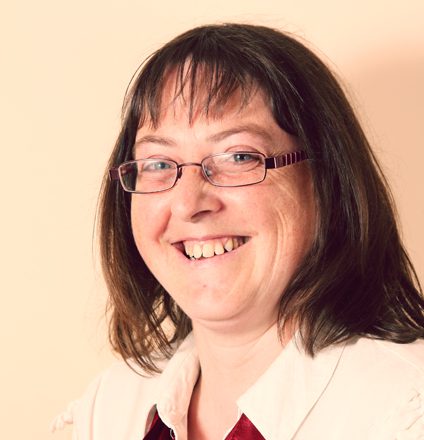
Alison Lambert
Joined in 1999Alison started playing the flute when she was 16 and quickly discovered that she enjoyed playing flute more than playing the violin. After moving back to the area after finishing university, She joined the Silverwood Band. Alison enjoys most of the music we play and likes the challenge of some of the harder pieces. The Silverwood has always been a welcoming and friendly band. She has recently started playing in a flute choir with other members of the section called Flautissimo, and is a Brown Owl and a member of the church choir.
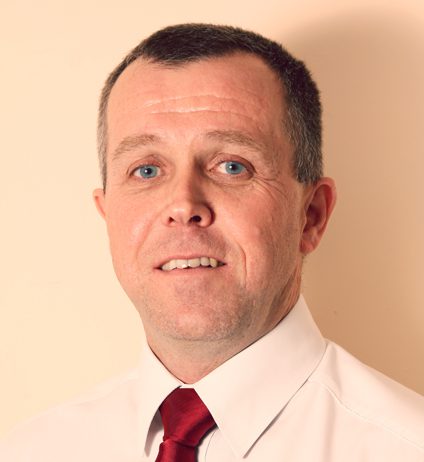

Natalie Taylor
Joined in 2014Natalie, as well as being one of our flute players also steps in to play the keyboard part for some pieces. She started playing Piano at age 7 and later picked up the flute at school. Natalie enjoys many different genres of music, from classical to rock. Her musical heroes are John Williams, Gabriel and Bernstein. We met Natalie when she played in a joint concert with the choir she was accompanying, and she enjoyed the range of music we played so much she decided to join the band.

Wendy Kendal
Joined in 1998Wendy started to play the flute when she was 12 years old at school, a suggestion from the music teacher as she played the recorder. She achieved grade 5 before leaving school, but has not done any exams since. Band night is her night of relaxations from a hectic family life (3 children , a part time job and a selection of pets keep her busy.)

Jayne Tyerman
Joined in 2017A little-known fact about Jayne is that she started to learn harp at primary school, perhaps because of her favourite pieces of music is Stairway to Heaven, and everyone knows you can't go to heaven without a harp. She enjoys a large range of musical styles from classical to country or pop music depending on her mood, although we all hope she doesn't get into the country mood to often.

Sarah Weyell
Joined in 2022Sarah has played the flute since she was 7 and enjoyed playing with various ensembles with Leicester County Music. After a significant break due to relocation, work and children, she has taken up the flute again and is thoroughly enjoying playing in public again.
The oboe is a member of the woodwind family and plays in the key of C, it is accredited with being the hardest woodwind instrument to play. It is part of the family of instruments that are played using a double reed, made by binding two shaped pieces of reed together. A common myth is that the oboe takes a lot of breath to play, in actual fact because of the small reed the oboist cannot put a lot of breath through the instrument, the difficulty comes from having air in the lungs that you cannot exhale a bit like holding your breath. It dates back as far as the mid 17th century and until 1770 was known as the hautbois. You may occasionally see another member of its family, the cor-anglais played in a wind band setting. With the other high woodwind it will often play the fast, intricate melodic lines that would be played by the violins in an orchestra.

Judith Daley
Joined in 1985Judith started playing the oboe at the age of 12 with Tees Valley Music Service, and soon started having private lessons with Monica Haughton where, if she had worked hard in her lesson she was allowed to play either her favourite piece of music, the Arrival of the Queen of Sheeba or play on her teachers Cor Anglais. She enjoyed playing the Cor so much that when she could she bought herself one, which she gets to play with the Teesside Symphony Orchestra where she now plays 1st Oboe. Her highlights have been perfoming the Cor-Anglais solo's in Copland's Quiet City with John Bush and Rodrego's Concerto de Aranjuez with Matthew Proctor, and more recently Jonathan Parkin. She enjoys many genres of music from classical to Big band and film and musical.If she had to choose another instrument Judith would like to play the Northumbrian Pipes or the Harp. After a sebatical of a few years she rejoined the band in 2011

Sarah Harkess
Joined in 2010Sarah started to play the Piano as a child but when she was 13 she started playing the oboe . Sarah loves playing a whole range of music. But her musical hero is John WIlliams as his music for films appeals to a wide range of people. Her favourite pieces of music are Nina Simone - Feeling Good (although the band play Michael Buble's version). Albinoni's oboe Concertos or anything by Andrew LLoyd-Webber (depending on what mood she is in) If Sarah was to try and learn another instrument it would be the Cello, but the oboe is a lot easier to get in the car.
The clarinet is a member of the woodwind family. It is played using a single reed that is fastened to a mouth piece by a ligature. It dates back to around 1730’s and has a large number of variations in it’s family. In a wind band you will usually see the B flat and bass clarinet’s being played and occasionally and E flat clarinet. As with the other higher woodwind instruments, flutes and oboes, will often play the fast, intricate, decorative melodic lines that would be played by the violin section of an orchestra.
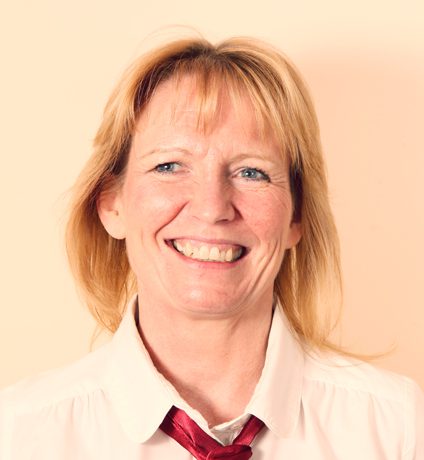
Jean Neale
Joined in 1999Jean started playing at 13 years old at school. Initially on the trombone, but moved onto alto sax, then shortly afterwards the clarinet. Jean’s musical journey began with the Silverwood band playing Alto Saxophone before transitioning to the Tenor Sax. Ultimately, she found her home in the Clarinet section. In addition to her playing with the Silverwood band, Jean plays Alto Sax in a big band and also spent many years performing in a dance band, playing for dinner dances. Her favourite styles of music are swing and Big Band, with musical hero Benny Goodman. Jean thrives on the challenges and enjoyment of playing in the band. For her, the joy of making music is very rewarding.

Margo Waites
Joined in 2013Margo started playing clarinet in primary school and continued at Manor Comprehensive improving to grade seven standard before leaving school. She was a member of the Hartlepool Senior Wind Orchestra and continued to play with them until she got married and family commitments took over. Margo enjoys swing music, as do many clarinettists, and if she had the chance she would have liked to learn to play the piano. Margo finds band practice gives her a chance to relief stress and makes her practice between rehearsals (which we are sure is the truth).
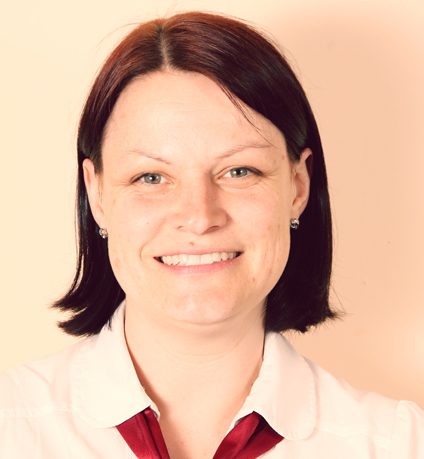
Sarah Batty
Joined in 2011Sarah learned to play the clarinet at Ian Ramsay School where she played in the school bands and orchestras. She didn’t play all through my twenties and started playing again in 2010 after having her children. Sarah loves all types of music, but says her inspirations are Benny Goodman, The Beatles and Amy Winehouse. If given the chance she would like to also play the E flat clarinet or bass clarinet, so it’s pretty safe to say she loves the clarinet, but someone has too!

Claire Redgrave
Joined in 2014Claire started her music making as most of us do on recorder in primary school and moved on to the clarinet in year 4. She enjoys musicals and big band music. Claire has always been intrigued by how the trombone works, (haven't we all, including some trombone players, it’s something to do with the slidey thing as far as we know), and would also like to have learnt to play the drum kit. Her music hero is a local musician, and past member Chris Britland who was a past music teacher, and it was Chris who encouraged her to join the band.

Paula Bailey
Joined in 2017Paula started to learn music on the piano (but don't worry Paula we won't say how long ago that was) She then moved on to the clarinet, it was much easier to get on the bus to school with a clarinet. Paula enjoys music from films, Broadway shows and Jazz/ Big Band. Paula's musical heroes and inspiration are her 3 daughters who all play woodwind instruments and she has spent many a long evening doing the school concert rounds.

Ben Hastings
Joined 2021Ben joined the band when we resumed after the covid lock down in 2021. We are very lucky to have Ben in the band as he is a man of hidden musical talents, and although he plays the clarinet with us is known to play Sax and Flute as well.

Liz Gibson
Joined in 2021Liz started playing the clarinet at a very young age and achieved grade 8 before leaving secondary school. She has played the clarinet in church, in a number of orchestras and school bands and also been part of a local ceilidh band in the past. On returning from university she taught herself the saxophone and a few years ago also took up piano lessons and in 2021 achieved grade 4. She joined the band in 2021 looking for a musical challenge and wanting to find like minded friends.

Abigail Cushing
Joined in 2025Abigail started playing the clarinet in year 4 at school and then started the piano a couple of years later. She has grade 8 in both instruments along with music theory. She has played in multiple music groups throughout school and university including other wind bands, choirs, orchestras and a clarinet choir. After moving to the area she joined the band to meet new people and continue to enjoy playing.

Christine Cope
Joined in 2015Christine is now semi-retired after more than 45 years working in music education. So now has the time to return to playing the clarinet, the instrument that was her way in to music as a teenager. Christine has also recently taken over the bass clarinet parts. Christine’s musical hero is Jack Brymer and was lucky enough to take part on a masterclass with him in her youth. Christine’s favourite piece of wind band music is Vaughn Williams English Folk Songs Suite a true classic piece of wind band repertoire.
The alto saxophone is a member of the woodwind family and plays in the key of E flat, sound is produced using a single reed attached to a mouth piece with a ligature. A relatively new member of the woodwind section it was developed by Adolphe Sax in 1841. It as a member of the saxophone family, all of which you will see playing in a wind band. More noted for its use in big bands and jazz, it will play the alto line of music adding weight and colour to the middle section of the band.
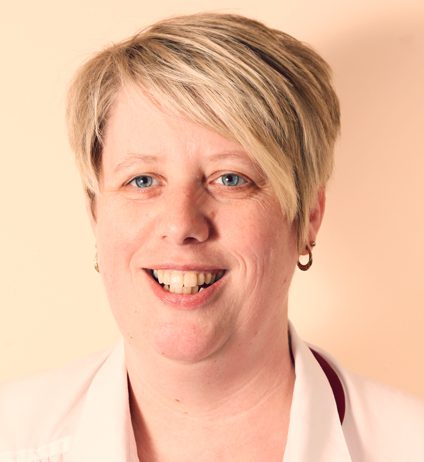
Anne-Marie Billington
Joined in 1985Anne-Marie joined the band in 1985 at the age of 14. She originally played clarinet, then for a short time played the bass clarinet before returning to clarinet. She then convinced her grandparents to buy her an alto saxophone, which she has been playing for over 20 years. She has served on the committee for a number of years, as treasurer and currently as the chairman of the band, where she is a force to be reckoned with.

David Vaughan
Joined in 2011Dave has been playing music since he was 7, first piano and latterly sax. Dave says his reason for joining was to give him the opportunity to play music with other people which he says is the best way to improve and advance. Outside of the band he works as an IT manager and he also leads the worship team at South Bank Baptist Church. Through the church he met the bands former musical director Stuart Shields who invited him to come along and join the Silverwood Band.

Caroline East
Joined in 2010Caroline worked at the Kings Academy school, along with some of the other members of the band including our former Musical Director, Stuart. She had been playing the sax for about 3 years before joining the band and says playing with the band has definitely helped her to improve. She also enjoys Irish Dancing, Cycling and pub quizzes and spending time with her young family.

Carol Bibby
Joined in 2023Carol started playing the clarinet at the age of 14 and gained Grade 5 before she left school. Twelve years later, while living in Saudi Arabia, she joined the Riyadh Concert Band and started to play clarinet once again. Carol was persuaded to try alto saxophone and was soon playing in a soul band in Dhahran called The Business which was popular amongst the expatriate community (in secret). On returning to the UK and a 25-year break from music she started saxophone lessons during covid, which she continues. Carol is very happy to be a member of Silverwood Band which she finds challenging and rewarding and which she feels is definitely helping her to improve.
The tenor and baritone saxophone’s are members of the woodwind family, the tenor plays in B flat and the baritone in E flat, the sound is produced using a single reed attached to a mouthpiece with a ligature. Relatively new members of the woodwind family they belong to te group of 14 instruments patented by AdolpheSax in the 1840’s. More noted for their use in big bands and jazz the tenor will play the tenor/ baritone lines in the band adding weight and colour in the lower section of the band, while the baritone sax plays the bass lines.

Janet Hutchinson
Joined in 2014Janet as most people do, started by playing the recorder in primary school, and then started playing the clarinet at the age of 9. Finding the clarinet quite difficult, she gave it up after about 18 months. At the age of 13, she decided she would quite like to play the saxophone (because they are cool) and took up the tenor sax (before Lisa Simpson made it even cooler), which she played for 3 years until she left school. 25 years later, her husband persuaded her to buy a sax, so she contacted her old teacher for a few lessons to get back up to speed. Janet likes swing music, musicals and film scores and her favourite piece of music is Come What May from Moulin Rouge.
The bassoon is a member of the woodwind family and plays in the key of C. Sound is produced using a double reed like the oboe. There is some debate to its early origins but Martin Hotteterre is widely accredited with developing the bassoon in today’s recognisable form in 1712. Although there is also a contra bassoon in its family you will usually only see the bassoon played in a wind band. It will play either bass lines or tenor lines depending on the composition.

Carol Allott
Joined in 2016Carol started by playing recorded in school , but quickly decided that they were not big enough so moved on to Bassoon. She enjoys all genres of music although her favourite piece of music is Holst's Planet Suite (guess is has a good bassoon part). Carol also plays with local orchestras and quartets, as well as being a mum and Primary School Teacher. If Carol was to pick a different instrument to play it would be the Baritone Sax, another big instrument which gets to play all the low notes.
The Trumpet is a member of the brass family and plays in the key of B flat in the band, however they can also be found in the key of F, C, D, E flat E and A but these are usually used in orchestral work. Originally dating back around 3000 years to China when it was a straight instrument without valves it was seen in a form something similar to its current one in around the 1300 when its tubing was bent to produce a shorter instrument. It wasn’t until the 1700 when valves were introduces to allow players to pitch different notes without having to use the embouchure to produce the sound. In the band the trumpet will usually play the melodic line when it requires a fuller heavier sound and will be used for fanfare type melodies.

Harriet Macrae
Joined in 2021Harriet joined following the covid pandemic, she has quickly proved herself to be an asset to the trumpet section.

Andrew Daley
Joined in 1988Andrew started playing the cornet at the age of 12 and moved on to trumpet has he got taller. He is one of the longest serving members of the band. He enjoys most styles of music and is a regular supporter of the Teesside Symphony Orchestra where his wife plays, as he dare not miss a concert, but it is swing music that really floats he boat, typical trumpeter, loud and brash!!. His musical hero is Wayne Bergeron who, he tells us, is a modern day American big band trumpeter. When asked would he play any other instrument (usually by his wife) he says no the trumpet is king.


John Robinson
Joined in 2018John started to learn music by learning the piano with his teacher Mrs Twiddle (great name for a pianist). However he later decised to drop the 88 keys for an instrument with much less (3). His musc interests reange from New Orleans Jazz through Country and Western, film sound tracks and some classical music for the 1970's and 80's. His musical heros are the Jeff Wayne and John Barry. If he hadn't taken up the trumpet he would have liked to play the saxophone.

This could be you!
Joined us nowWe are currently looking for trumpets of grade 5 to 8 standrd to supliment all the parts in the trumpet section. If you are interested the get in touch
The French Horn and Tenor Horn are members of the brass family. The French horn plays in F and the Tenor horn in E flat.
The French Horn originates from the Scandinavian horns used during battles where it was used to scare the enemy. It made its way into orchestral works in the mid 1600’s from which point it has developed into a much more complex instrument and has the distinction of being the hardest brass instrument to play, partly due to its small mouth piece.
The Tenor Horn is more specific to brass and military style bands. It has a less penetrating sound than the resonant French Horn tone but plays similar parts to the French Horn. Both instruments play the alto melodic lines adding weight and texture to the centre of the band.
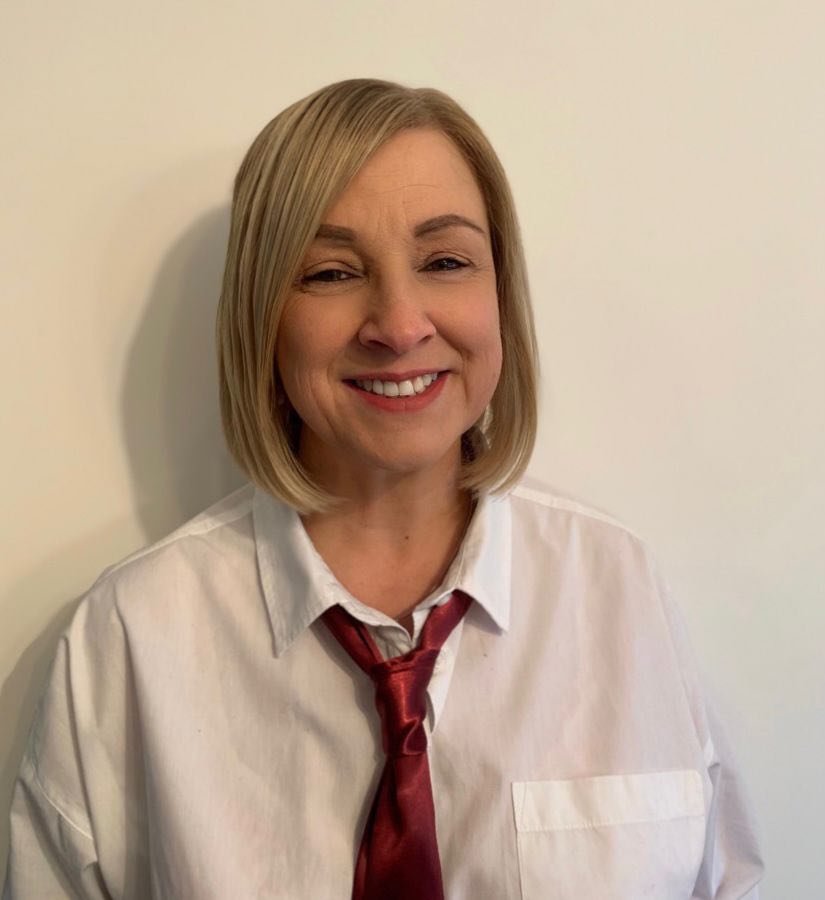
Allison Potter
Joined in 2015Allison started her musical life by learning recorder and violin at primary school in rural Gloucestershire, and moved on to cornet aged 11. At secondary school she switched to tenor horn, joined Malvern Hills Brass Band, and started learning flute and piano. She got her hands on a French Horn during 6th Form and went on to study it for four years at university. Allison enjoys classical and choral music, and her musical hero is Rev. Reg Legg, who appointed her head chorister and inspired her love of music. She currently plays in the Cleveland Philharmonic Orchestra and North Skelton Brass Band. If she were to learn another instrument Allison says it would be the guitar, which would mean she could sing along while playing her favourite song Golden Brown by the Stranglers.

John Larvin
Joined in 2023John played with the band in the days of Allan Waller but then left due to work and family commitments. We are pleased that now that his family has grown he has been able to join us again. John also plays with several orchestras in the region, such as the Teesside Symphony Orchestra and the Cleveland Philharmonic

Graham Mist
Joined 2023Graeme started playing the cornet at around 12 years of age with Ringwood & Burley Brass Band, where his Dad played the E Flat Bass. He then went on to join the military as a musician doing his training in Lichfield Staffordshire for 2 years. Followed by a year at the Royal Military School of Music Twickenham. He was then posted to the Regimental Band of The Royal Hampshire Regt, based in Berlin and has toured the world playing all types of music. Graham changed to French Horn ( best move ever as there so much Lush music written for it.) He left the army after 23 Years, his last posting was with the Normandy Band of the Queen’s Division as a WO2 Band Sergeant Major. I joined Silverwood last year, for a bit of me time on Thursday Nights. Its a pleasure to come along, sit down and play great music. Great people, good musicians its great to be one of 4 Horn players, producing great sounds.
The Euphonium is a member of the brass family and plays in B flat. It is larger than a Tenor Horn but smaller than a Tuba. The Euphonium can trace its history back to the Ophicleide . It is reported to have been invented by Ferdinand Sommer in 1843 its name is taken from the Greek word Euphonos meaning well sounding or sweet voiced. It is more often seen in brass and military bands, and will take the tenor or baritone melodic lines adding weight to the lower section of the band.

Samantha Gage Sharpe
Joined in 2013Being brought up in the Salvation Army, Sam learnt to play a brass instrument at an early age. She played Euphonium for a number of years in both the Salvation Army band and the school band. She then had a break from playing any music for quite a while until, inspired by a TV show about celebrities learning to play instruments she took up the piano which she has been playing ever since. In 2012 she took up the clarinet which she had always wanted to play and once she had learnt enough joined the Cobwebs Community Orchestra (which she also still plays with) she met Sarah Batty who suggested that she come along to the Silverwood band, she thoroughly enjoys playing with the band and look forward to practices on a Thursday evening and playing in concerts put on by the band.kome. Since returning to band following the pandemic Sam made the switch back to her original instrument the euphonium, to swell the numbers in the brass sections.

This could be you!
Join the band nowWe are currently looking to rebruit euphinium or baritine plays to enhance this section of the band. If you are grade 5 or higher why not get in touch.
The Trombone is a member of the brass family and usually plays in C. It is distinctly different from the other brass instruments in the band as it uses a telescopic slide system to change pitch rather than valves, this makes the Trombone one of the few instruments that can produce a true glissando. Used in orchestral playing, brass band and military band the trombone will play the tenor or baritone melodic line adding weight to the lower section of the band.

Jonathan Tindale
Joined in 2021
Barry
Joined in 2023
This could be you!
Join us nowWe are currently looking for trombone players to join and support this section, if you are grade 5 or higher why not get in touch.
The Tuba is a member of the brass family and can be found in either E flat or B flat. It holds the prestigious position of being the largest wind instrument in the band. Developed in the mid 19th century it is a relatively new addition to the orchestral family and is used a lot in brass and military style bands. It plays the bass melodic line adding weight and grounding to the bass section of the band..
We are currently looking to recruit a tube player. If you know anyone of grade 5 standard you think will be interested please direct them to the vacancies section of this site.

Tim Hall
Joined in 2022Tim has many years experience in the brass band world, and joined the band to fill up his retirement years.

This could be you!
Join us nowWe are currently looking for tuba players to join the powerhouse of the band. If you are grade 5 or higher why not get in touch
The percussion section of the band covers those musical instruments that can be either struck or brushed using a beater. Part of the oldest family of instruments the bands percussion section can be split into two parts. Un-tuned percussion covers those instruments that do not have the ability to change pitch such as the drum kit or cymbals. Tuned percussion are those instruments that can change pitch such as Timpani and the Glockenspiel. They add a rhythmic backing to the band that helps to bind the music together, or can add effect by the different sound they make from a wind instrument.

Gary Douglas
Joined in 1996Gary started playing the violin at school, but gave up playing as work commitments and family life took up the majority of his time. When he started playing again, he joined a local string orchestra which he played in for several years. As he was aging Gary decided he needed an instrument that would also help keep him fit so he bought a drum kit. He had musical workouts from a local drummer Kel Dennis, who suggested that he join a band and have fun playing along with other musicians. He heard about the Silverwood Band through a friend, so came along to a rehearsal and was bitten by the bug and has played there ever since. After a while with the Silverwood, he also joined a brass band and has competed with them at the national finals on a number of occasions. in 2016 he proposed to his fiancee while away on tour with the band in the Lake Distict, much to the surprise of the whole band including Anne-Marie (his now fiancee).

Jude Skirving
Joined in 2022Jude is a talented Clarinettist playing with the Teesside Symphony Orchestra and also a pianist, but has joined the band on tuned percussion and other parts of the kitchen sink for a challenge.